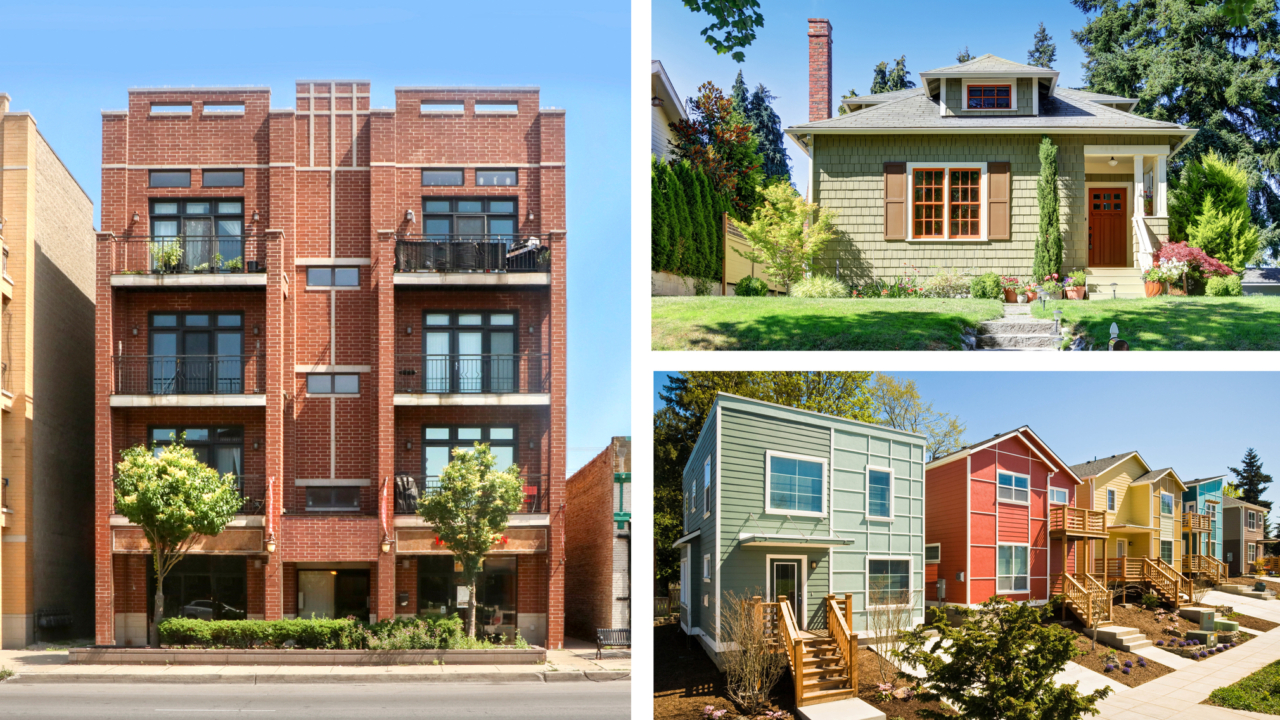Buyer or Seller: Who Pays for What
From escrow fees to agent commissions, there's plenty to divvy up between buyer and seller. We'll walk you through it.


Written by Tali Bendzak on October 6, 2025
Edited by Jessica Rapp
Key takeaways
- What sellers pay: Sellers may cover their real estate agent's commissions (decided through negotiations), escrow fees (often shared ~1%), owner's title insurance, transfer taxes, and may offer a home warranty ($300-$500) as a buyer incentive.
- What buyers pay: Buyers typically pay their real estate agent's commissions (decided through negotiations), home inspections, appraisals, land surveys, lender's title insurance, and potentially other due diligence costs.
- Some costs can be negotiated: During the transaction, understanding the typical split helps budget and negotiate effectively.
The financial details of buying or selling a home are much more complex than just the listing price. From inspections to agent fees and everything in between, both buyers and sellers hold financial responsibility for transaction expenses and closing costs. Knowing who pays for what can help ensure a smooth sale.
While some aspects of closing costs can be negotiated into the contract between the buyer and seller, certain things are typically paid by one party or the other. Read on to learn which big bills you, as the seller, should be budgeting for, and which will be the buyer’s responsibility.
Who pays real estate commission?
In some cases, sellers will pay their own agent’s commission while the buyer will pay theirs, while in others, sellers may cover part of the commission for the buyer's agent, but they don’t have to.
It's essential to have an open conversation with your buyer’s agent or listing agent about their commission structure, the services included, payment terms, and who is responsible for the payment. By discussing these details early on, you can ensure a clear understanding of the costs involved and potentially negotiate a more favorable arrangement.
You can find an agent who fits your needs on Zillow. You can also reach out to a few agents and interview them before choosing who you’ll work with.
Cost: On a $370,000 home, a full-service real estate commission could cost the buyer or seller between $11,100 to $22,200 based on the historical 3% to 6% commission rate. However, this will vary based on what you and your agent ultimately agree to.
Who pays escrow fees?
Escrow fees are typically split 50-50 between the buyer and seller, but can be negotiated between parties. Escrow fees cover the services of an independent third party to conduct the closing and manage funds during the transaction.
Cost: Usually 1% of the purchase price. On a $370,000 house, that's $3,700 for the seller and $3,700 for the buyer. Note that this does not include the actual money being held in your escrow account for closing. This is just the fee for the escrow company's services.
Who pays for the home inspection?
The buyer pays for a home inspection if they choose to conduct one. Inspections are meant to protect the buyer from any hidden defects in the home that could impact the home's value, cost a lot of money to repair or make the home unsafe to live in. Buyer’s agents usually recommend inspectors to their clients, but you can also search for local inspectors and see their reviews on Zillow.
Cost: The average home inspection costs between $250 and $700.
Sellers sometimes decide to do a pre-inspection for a better sense of what the buyer's inspector will find and the chance to make any important repairs before listing. A pre-inspection typically costs about the same amount as a buyer's inspection.
Who pays for the appraisal?
Buyers cover the cost of the home appraisal, which is usually required by their lender if they will be taking out a mortgage to buy the home. Even if it isn’t required, buyers sometimes complete appraisals for peace of mind that they’re making a smart investment and not overpaying.
Cost: Appraisal costs usually range from $300 to $450, and can vary in price depending on the location, size of the property, and the company who ordered the appraisal.
Who pays for a land survey — buyer or seller?
The home buyer pays for a land survey, if they request one. Considered due diligence (much like a home inspection), a land survey lets the buyer know the details of the exact property they're purchasing, including property boundaries, fencing, easements and encroachments.
Cost: The price starts around $520, but it can vary depending on property size, shape, and location, according to home improvement website Thumbtack.
Who pays for title insurance?
Both the buyer and seller pay for title insurance, but each type is slightly different. The seller pays for the title insurance coverage for the buyer, and the buyer pays for the title insurance policy for their lender. In general, title insurance ensures the home is 'free and clear' and that no third party has an unknown claim to the property.
Owner’s title insurance (paid by the seller for the buyer)
Owner’s title insurance provides protection so that no one else can claim ownership over the property from a prior dispute or lien from a contractor, attorney or other third party. It's important for the buyer to have, because it protects them from legal or financial damages if another party were to try and claim ownership over the home in the future, after they purchase the home.
Cost: Buyer's title insurance costs between $500 to $3,500, depending on the scope and coverage.
Lender's title insurance (paid by buyer)
The lender's title insurance is paid by the buyer, and it protects the lender's financial investment in the home. It's usually required for any buyer who is buying with a mortgage, and the coverage remains until the loan is refinanced with another lender or paid off.
Cost: Lender's title insurance coverage costs between $500 and $1,000.
Who pays for a home warranty — buyer or seller?
Either the buyer or the seller can pay for a home warranty. Sellers could buy it and transfer it to the buyer as an incentive, or the buyer can purchase a home warranty themselves. It's often offered as an incentive to attract buyers, but it's not required. Offering a home warranty gives the buyer assurance that they won't have to pay any huge repair bills soon after moving in — most policies are good for a year. They typically cover the home's major systems, including plumbing, electrical and appliances.
Cost: A one-time cost between $300 and $500 for one year of warranty coverage.
Who pays real estate transfer taxes?
The seller is responsible for paying any real estate transfer taxes, which are charged when the title for the home is transferred from the old owner to the new owner. Transfer taxes can be levied by a city, county, state or a combination.
Cost: Transfer tax costs vary dramatically in different parts of the country and can even vary from a city to its nearby suburbs. And rates can fluctuate over time based on levies and tax rate changes. In some areas, transfer taxes may only apply to homes sold over a particular price point. Ask your real estate agent or escrow company for the correct rate for your area.
In some parts of greater Phoenix, Portland and other areas, there is zero transfer tax on the sale of a home. The entire state of Texas doesn’t have a transfer tax, either. But again, these taxes are designated by multiple municipalities making the tax breaks specific to each small region and difficult to summarize at scale.
Use Zillow’s Closing Cost Calculator to estimate the fees you'll pay at closing on a home purchase.
Ready for a new address?
Get an instant cash offer or list with a local partner agent.
Explore selling optionsRelated Articles
Sell your home with a winning strategy
Here’s how to maximize your home sale with the right selling plan.

Build a smart selling plan
Talk to your agent about their marketing approach - especially online - to ensure you’re getting the best possible price for your home.



